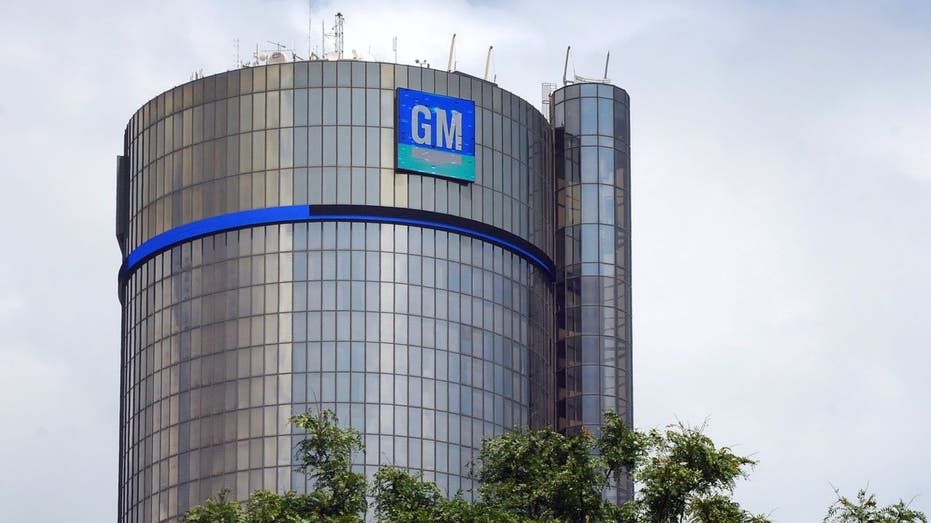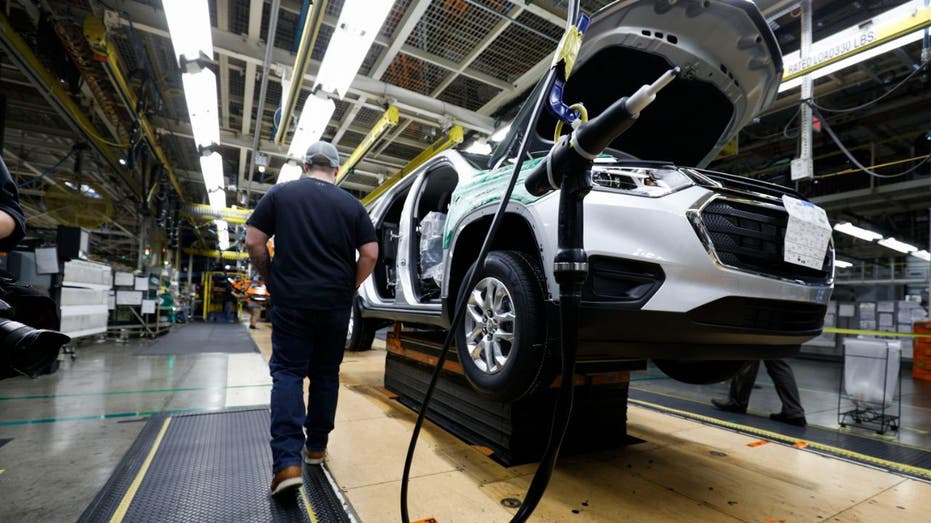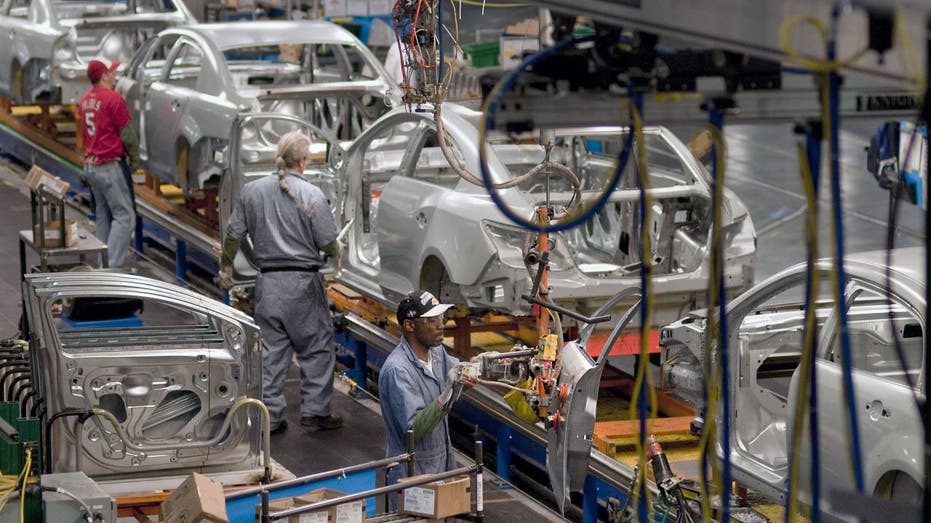GM lost tax credits on 20,000 EVs due to battery sourcing requirements
GM said it made about 20,000 EVs that didn't qualify for tax credits before it reworked its sourcing to regain eligibility
We have to find other ways of making electricity: Kevin O’Leary
Kevin O'Leary on the reality of electric vehicles, lithium batteries, Boeing stock and Joy Behar of ‘The View’ mocking Gen Z for claiming it can't make it in today's economy.
General Motors said the Detroit automaker built about 20,000 electric vehicles (EVs) so far this year that didn't qualify for EV tax credits because of battery sourcing requirements.
GM lost access to federal tax credits for nearly all of its electric vehicle models on Jan. 1 when new requirements from the U.S. Treasury Department took effect and made many EVs ineligible for tax credits. GM Chief Financial Officer Paul Jacobson said GM built about 20,000 vehicles over a 60-day period this year that didn't qualify for the credit.
Despite GM's EVs losing eligibility for the tax credits for the first part of this year, GM said that it has since regained eligibility for many of its EVs, including the Chevrolet Blazer EV and the Cadillac Lyriq, after it made changes to its sourcing policies to comply with the regulation.
The sourcing requirements were included as part of the Inflation Reduction Act and require that automakers can't source any battery components from foreign entities of concern while maintaining eligibility for the EV tax credit.
FORD, GM CEOS OPEN TO PARTNERSHIPS TO COMPETE WITH CHINA

GM said it made about 20,000 EVs that didn't qualify for tax credits before it reworked its sourcing to regain eligibility. (Paul Hennessy/SOPA Images/LightRocket via Getty Images / Getty Images)
It also set a requirement for the percentage of applicable EV battery components that must be manufactured or assembled in North America.
For 2023, the applicable percentage was 50%, and it rises to 60% for 2024 and 2025. From there, it rises by 10 percentage points annually until it reaches 100% beginning in 2029.
| Ticker | Security | Last | Change | Change % |
|---|---|---|---|---|
| GM | GENERAL MOTORS CO. | 84.24 | +0.95 | +1.14% |
The EV tax credit rules also include a requirement that critical minerals contained in the battery be extracted or processed either in the U.S. or in a country with which the U.S. has a free trade agreement or be recycled in North America.
EVS MAY MAKE AIR DIRTIER THAN GAS-POWERED CARS AS CALIFORNIA PUSHES NEW MANDATES: STUDY

GM said federal EV tax credits were a key factor in the automaker's bid to reach break-even on North American EVs later this year. (Bill Pugliano/Getty Images / Getty Images)
The battery sourcing threshold started at 40% in 2023, rose to 50% this year and will rise by 10 percentage points each year until it reaches 80% in 2027.
It also prohibits EV tax credits for any vehicle that includes battery components containing critical minerals that were extracted, processed or recycled by a foreign entity of concern.
GM did not immediately respond to a request for comment.

GM said it has changed its battery sourcing to regain eligibility for the EV tax credit on many of its vehicles. (Steve Fecht/General Motors via Getty Images / Getty Images)
GM and Detroit rival Ford recently expressed an openness to partnerships to compete with China on EVs.
"We can start having a competitive battery situation," Ford CEO Jim Farley said. "We can go to common cylindrical cells that could add a lot of leverage to our purchasing capability. Maybe we should do (this) with another OEM (automaker)."
GET FOX BUSINESS ON THE GO BY CLICKING HERE
GM CEO Mary Barra said last month the automaker may be able to break even on its North American EVs in the second half of 2024 if it can reach an annual production rate of 200,000 to 300,000 vehicles and continue to benefit from federal EV subsidies under the Inflation Reduction Act.
Reuters contributed to this report.




















